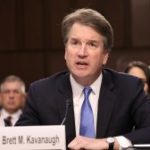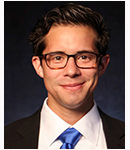Dr. Nick Pitts is the host of today’s Millennial Roundtable. He is joined by First Liberty’s Chelsey Youman. They will be talking about the Millennials take on what’s happening in our nation. It’s going to be fun!!
Give us a call at 800-351-1212 or post a question on facebook at www.facebook.com/pointofviewradio.

She joined First Liberty Institute after working for a law firm in private practice, where she successfully litigated corporate fraud matters, complex commercial litigation, and consumer rights issues in both federal and state jurisdictions.
Youman received her Juris Doctor from Southern Methodist University, where she was a Dean’s Scholarship Recipient. She was also a member of the Board of Advocates, where she successfully argued in off-campus mock trial competitions, and was a member of the Aggie Law Society and SMU Christian Legal Society. During law school, she clerked for the Consumer Protection Division in the Office of the Attorney General of Texas and Liberty Institute.



 Listen Online
Listen Online Watch Online
Watch Online Find a Station in Your Area
Find a Station in Your Area


 Watch Now
Watch Now Listen Now
Listen Now 






 Listen Now
Listen Now Watch Online
Watch Online
